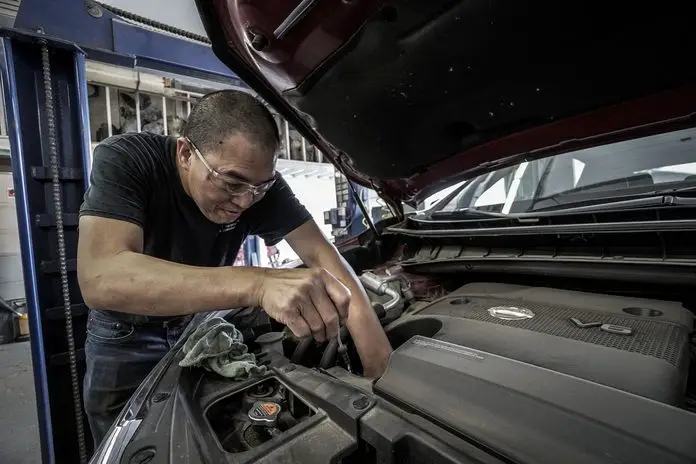
If you own a car, one of the things you should know is how and how long does it take to replace a car battery. Of course, you can always bring your car to an auto service center. But, it is always a big plus if you know how to do it yourself.
How long does a car battery replacement take? It actually depends on the type of car, but, normally, it will only take less than 30 minutes to replace a car battery.
How Do You Know That Your Car Battery Needs To Be Replaced?
A large majority of cars manufactured after the mid-50s are equipped with 12-volt rechargeable lead-acid batteries. These batteries contain lead plates (negative and positive), separators and electrolyte, a solution made of water and sulphuric acid.
The main function of your car battery is to start up your car and to provide power to some of the car’s electronic accessories while it is parked. It uses its charge to accomplish these functions. When the car is being driven, the alternator takes over the function of powering the electrical system as well as recharging the battery.
As time passes, a battery’s ability to hold a charge diminishes and its capacity decreases. There will come a day when your car will just refuse to start, and, it is most likely to happen during the cold season. Of course, the immediate remedy is to jump-start the engine, which is not a very good idea, especially if you do it quite often.
To prevent this unfortunate scenario, you should already replace your car battery before its capacity deteriorates to a critical point.
Generally, car batteries are given a lifespan of three to five years. But with proper and maintenance, their service life can be extended. If you keep your battery always fully charged and you drive it daily, you can prolong its life. But, if your car is parked for extended periods more often than it is driven, your battery could fail sooner.
Also, a battery gradually loses its efficiency each time you charge it. After three years, nearly all car batteries start to become unreliable. This could cause some serious reliability and safety problems.
Signs Of A Battery Nearing Its End
It is easy to detect if your battery is approaching the end of its lifetime. There are discernible signs that will alert you of its impending demise. Here are the giveaways:
1.The engine cranks but it does not start
When you turn the ignition, and the engine cranks up but does not start it could be caused by several things; a defective starter, poor fuel pressure or a dead or dying battery. In a lot of cases, the battery is the culprit.
When this happens, the immediate solution is to jump-start it. This would give you a few worry-free days, but if it is the battery, it could happen again soon. The most prudent thing to do is to already think of replacing the battery.
2. The engine does not crank and start and the lights don’t work
When the engine refuses to crank up and start when you turn on the ignition, and even the lights – headlights, dome light, dashboard light, etc- don’t work, the most probable cause is a weak or dead battery.
When the car is parked and the alternator is not working, the electrical system draws power from the battery. If the engine is dead and the lights are dim or are completely inoperable, the battery must be in a very serious condition.
3. Intermittent starting up problem
One morning you have no difficulty starting the engine, but the next morning it refuses to start. If this scenario gets repeated several times during the week, the problem could be:
a. The battery terminals. They could either be calcified, corroded, broken or loose.
Calcification and corrosion of battery terminals are two of the most serious causes of sulfation, a cause of an early demise of a battery.
b. There is a parasitic drain in your car. This means that an electrical accessory which is to be turned off when you switch off the ignition continues to draw power from the battery.
A parasitic drain could drain your battery below the full discharge that could kill it.
4. Slow cranking or extra effort or energy needed to crank the engine in the morning
Batteries have an assigned CCA or cold cranking amps needed to crank up your engine in the morning. If you are frequently applying more energy, turning the ignition several times to rev up the engine, at the start of the day, in all probability, this situation is caused by either battery terminal issues or a parasitic draw.
If this happens regularly, your car battery must be nearing its death.
5. When you have boosted the engine or jump-started it three or more times in a week
Frequently jump-starting a battery could cause serious damage to a battery. A battery that is being boosted three times a week already needs a replacement. Frequent jump-starting could not only ruin a battery, but it could also damage the alternator.
Conclusion
How long does it take to replace a car battery is easy to answer if you are doing the replacement work yourself. It may take a shorter time if done by experienced mechanics, but doing it yourself will give you more satisfaction and a feeling of accomplishment.





